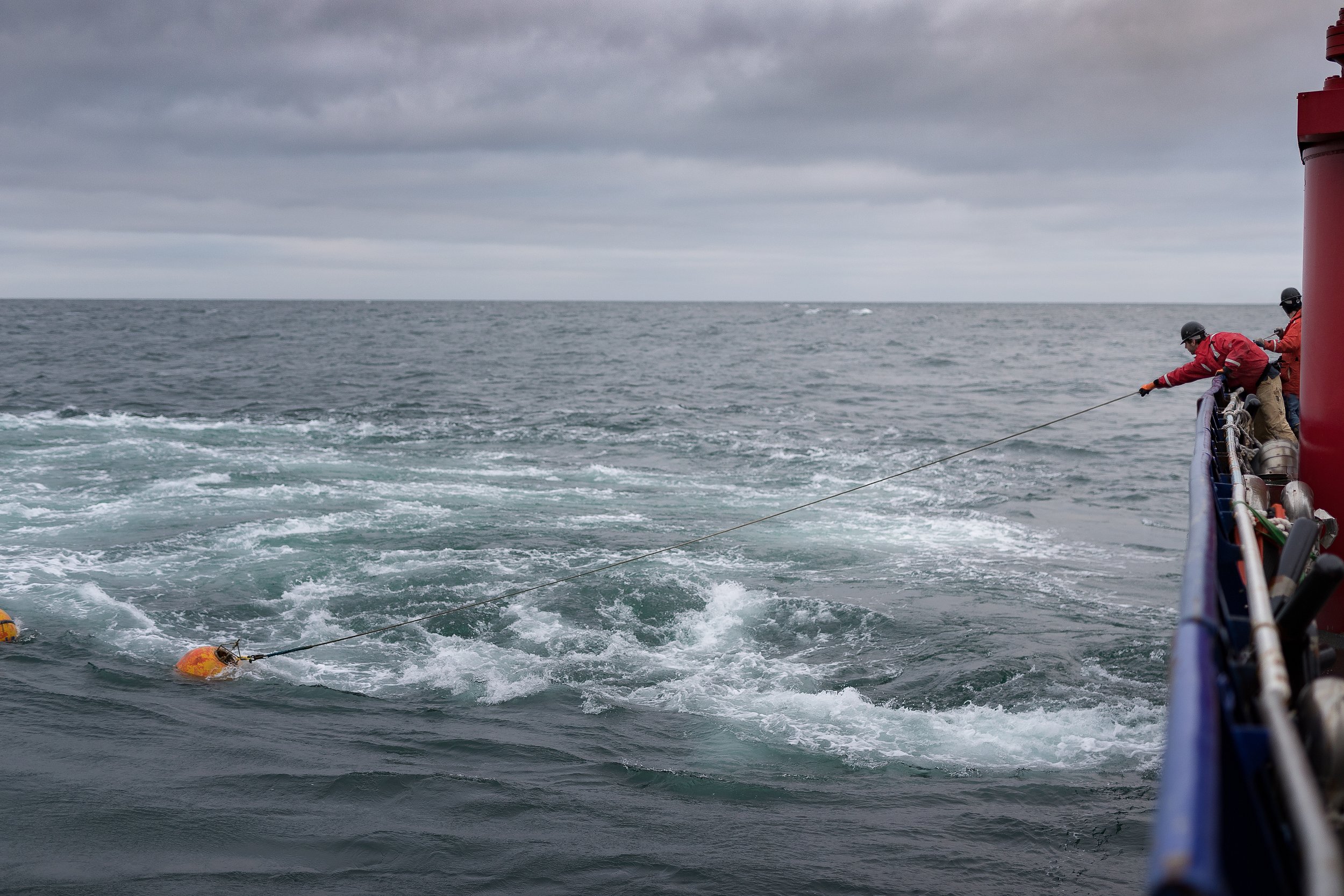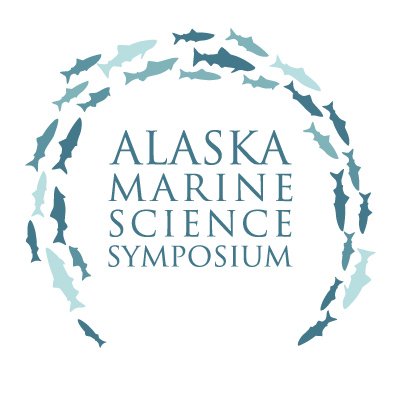
SYMPOSIUM WORKSHOPS
The Alaska Marine Science Symposium is the perfect venue to host additional meetings and workshops related to science, management, policy, data, engagement, and more. Please click on the link below and enter your workshop and/or meeting request. Workshops and meetings that have been added to the symposium will be added to this page when confirmed.
Meeting & Workshop Locations
The 2026 Alaska Marine Science Symposium (AMSS) will be held at the Hotel Captain Cook and Eagan Center. Coordinating outside meetings and/or workshops related to AMSS should be planned around the week-long event during times that do not conflict with symposium events. These include keynote and plenary sessions and poster presentations. Contact the symposium coordinator for any questions.
Events will be posted here along with important planning details. Only public meetings and/or workshops will be posted to the AMSS website.
Please note that a Media Room will be made available each day of the symposium in the Resolution Room. Lactation Room will be held in the Whitby Room.
CONFIRMED OUTSIDE MEETINGS & WORKSHOPS
Time & Location For Workshops
Bering Sea Crab Research Meeting
Alaska Department of Fish & Game | January 30th | 9am - 12pm | Adventure Room | Public Workshop
A plethora of new and ongoing scientific research is underway to help understand recent declines in Bering Sea crab stocks. The purpose of this meeting is to bring together scientists and AMSS collaborators to introduce their crab research, provide planning and cruise updates for 2026, and discuss synergistic activities related to data collection, analysis, and outreach efforts.
Arctic Biosecurity: Community-Led Early Detection Network
University of Alaska | January 30th | 9am - 12pm | Quadrant Room | Public Workshop
Arctic Biosecurity: Community-Led Early Detection (ArCLED) Network is a community-led biothreat monitoring and research project initiated on St. Paul Island. Through new technology and training, this project aims to establish the foundation for a community-led Biothreat Detection Network in Alaska. This workshop will serve as a first in-person meeting for team members, Tribal partners and researchers with a focus on St. Paul Island to share project goals, review sample collection protocols, discuss information sharing and data management plans. Part of this workshop is open to the Public from 9am-10:30am.
Alaska Harmful Algal Bloom Network Discussion
Alaska Ocean Observing System | January 26th | 9am - 12pm | Adventure Room | Public Workshop
The Alaska Harmful Algal Bloom (AHAB) network is gathering to discuss current and upcoming activities related to HABs in Alaska. Topics will include: Review of 2025 HAB events and response, 2026 HAB field work, future deployments of Imaging FlowCytoBots (IFCBs), messaging/communication about HABs development of communication materials, and HAB data working group development. The Alaska Ocean Observing System (AOOS) is hosting this discussion and will provide snacks and coffee/tea.
Alaska Marine Mammal Tissue Archival Project Training & Refresher
National Institute of Standards and Technology | January 26th | 9am - 11am | Voyager Room | Public Workshop
The Alaska Marine Mammal Tissue Archival Project is an ongoing, collaborative biospecimen collection in place since 1987. This workshop will provide tissue collection, processing, and data collection training to new collectors and provide a refresher opportunity to existing collection partners.
Discovering the Ocean Data Explorer portal
Alaska Observing System | January 27th | 12pm - 1pm | Adventure Room | Public Workshop
The Alaska Ocean Observing System (AOOS) maintains the Ocean Data Explorer (ODE) portal to make scientific and management information publicly discoverable and accessible. The ODE contains data layers such as real-time sensor feeds, operational oceanographic and atmospheric models, satellite observations and GIS data sets that describe the biological, chemical and physical characteristics of Alaska and its surrounding waters. Please join AOOS and Axiom Data Science for an interactive workshop introducing the ODE to new users, providing demonstrations of user features in the ODE, and answering your burning questions about how to use the ODE or how to find the data and information you need. Whether you are new to the ODE or are a “super user” with questions, if you are interested in publicly accessible ocean data in Alaska, this workshop is for you.
Kasitsna Bay Lab research and logistics planning
Kasitna Bay Laboratory | January 27th | 12pm - 1pm | Quadrant Room | Public Workshop
This is a workshop to provide updates on KBL research priorities, policies, and logistics. The session will summarize recent changes at the lab, discuss opportunities for the coming year, and present key summary data and research highlights from the last year. This workshop is open to all researchers and students currently working at KBL, as well as anyone interested in future collaboration.
Data Management in 2025
Axiom Data Science | January 27th | 5pm - 6pm | Adventure Room | Public Workshop
An overview of data management and governance, for researchers and organizations. We'll cover FAIR and CARE data principles and making reproducible science artifacts in a landscape of Open Science, Big Data and other capitalized keywords. We're going to cover questions like: What is metadata and why do I need it? What do I do when I outgrow my spreadsheets? Does file naming really matter? What do I really have to archive? What do I do with my model? Code? How do I use Research Workspace and get me a DOI? And host any questions the attendees bring!
NOAA Alaska research collaborative 2026
National Oceanic & Atmospheric Administration | January 28th | 12pm - 1pm | Adventure Room | Public Workshop
This workshop highlights the NOAA research initiatives currently being performed in Alaska. The goal of this event is to strengthen understanding and partnerships within NOAA Alaska and educate attendees on our ongoing work. This "speed-dating" style event will feature presenters who will introduce their organizations and focus areas. Each presentation will highlight three upcoming research priorities and provide specific project examples.
Alaska Student Chapter of the Society for Marine Mammalogy
The Society of Marine Mammology | January 28th | 12pm - 1pm | Quadrant Room | Public Workshop
Are you a student who studies marine mammals in Alaska? Do you love marine mammals? This is the workshop for you! During this workshop, join the rest of the members of the Alaska Student Chapter of the Society for Marine Mammalogy, a nonprofit organization, to learn more about who we are, what we do, and how we can help you achieve your marine mammalogy goals. Our mission is focused on providing academic and professional networking, as well as financial assistance to our members through research, travel, and tuition funds/grants. If you love marine mammals, come check us out!
Marine Debris - Roadmap for Research (Part 2)
National Oceanic & Atmospheric Administration | January 27th | 12pm - 1pm | Voyager Room | Public Workshop
Marine debris is a multi-faceted issue, with many different sources, pathways, impacts, and solutions that pose unique research questions. This workshop is an opportunity to build on conversations and efforts over recent years across the marine debris community, as well as a similar workshop at AMSS in 2025. The goal will be to gather researchers, stakeholders, and groups interested in marine debris to build a roadmap to prioritize and order research actions to better understand and address debris impacts over time.
Community Education Night
Prince William Sound Science Center | January 28th | 5:30pm - 7:30pm | Adventure Room | Public Workshop
Community Education Nights make science accessible by using simple language and interactive activities. Come for short scientist presentations, a relaxed setting, and an opportunity to mingle and enjoy easy guided engagement with the science presented. Great for teachers, students, experts, community members, and anyone interested in Alaska’s marine environments.
Alaska Marine Research Planning Night
Alaska Ocean Observing Program | January 28th | 6pm - 9pm | Quarter Deck | Public Workshop
The Alaska Ocean Observing System (AOOS) will again be hosting the Alaska Marine Research Planning Night. This event is held in the Quarter Deck to encourage the networking aspect of this event, instead of just more presentations. AOOS encourages marine researchers throughout Alaska to provide 1-5 slides that highlights cruise/field timing, location, duration, disciplines, vessel/platform, and opportunities for bunk space or data collection. AOOS will provide appetizers and a cash bar (we are Federally funded, so sadly we can’t provide the free drinks). Please send slides to Sheyna Wisdom at wisdom@aoos.org.
ABSI Stewardship Spotlight
Aleutian Bering Sea Initiative | January 28th | 6pm - 8pm | Quadrant Room | Public Workshop
The Aleutian Bering Sea Initiative (ABSI), part of the Northern Latitudes Partnerships housed at the Alaska Conservation Foundation, will provide updates on its Aleutian & Pribilof Guardians Workshop and other collaborative efforts with tribes, government agencies, academics, and non-profits. As a collective, ABSI supports equitable climate solutions by strengthening environmental stewardship and tribally led grassroots conservation. We invite you to join a discussion on current projects, future directions, and regional needs in the Aleutians and Pribilofs. Ongoing efforts include support for Indigenous Guardians programs, completion of a workshop series on nature-based solutions for coastal community resilience, and additional environmental monitoring and conservation initiatives.
